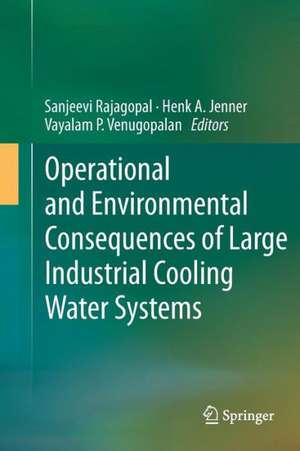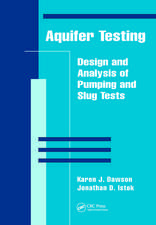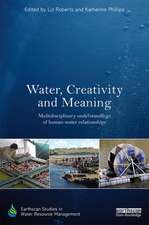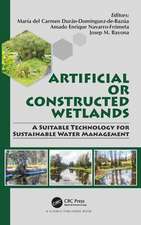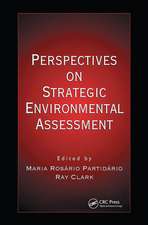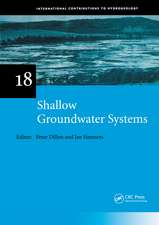Operational and Environmental Consequences of Large Industrial Cooling Water Systems
Editat de Sanjeevi Rajagopal, Henk A. Jenner, Vayalam P. Venugopalanen Limba Engleză Paperback – 2 mar 2014
| Toate formatele și edițiile | Preț | Express |
|---|---|---|
| Paperback (1) | 953.65 lei 6-8 săpt. | |
| Springer Us – 2 mar 2014 | 953.65 lei 6-8 săpt. | |
| Hardback (1) | 960.30 lei 6-8 săpt. | |
| Springer Us – 5 ian 2012 | 960.30 lei 6-8 săpt. |
Preț: 953.65 lei
Preț vechi: 1162.99 lei
-18% Nou
Puncte Express: 1430
Preț estimativ în valută:
182.50€ • 198.17$ • 153.30£
182.50€ • 198.17$ • 153.30£
Carte tipărită la comandă
Livrare economică 22 aprilie-06 mai
Preluare comenzi: 021 569.72.76
Specificații
ISBN-13: 9781489996961
ISBN-10: 1489996966
Pagini: 500
Ilustrații: XX, 480 p.
Dimensiuni: 155 x 235 x 26 mm
Greutate: 0.68 kg
Ediția:2012
Editura: Springer Us
Colecția Springer
Locul publicării:New York, NY, United States
ISBN-10: 1489996966
Pagini: 500
Ilustrații: XX, 480 p.
Dimensiuni: 155 x 235 x 26 mm
Greutate: 0.68 kg
Ediția:2012
Editura: Springer Us
Colecția Springer
Locul publicării:New York, NY, United States
Public țintă
ResearchCuprins
General Overview.- Entrainment of Fish Larvae, What is the Risk for 0+ Fish?- Fish Impingement and Prevention Seen in the Light of Population Dynamics.- The Ecology of Fouling.- Chemistry of Chlorination.- Chlorination for Biofouling Control.- Control of Microbial Fouling and MIC (Microbially Influenced Corrosion) in Raw Water Systems.- Chlorine By-Products and their Environmental Effects.- Alternatives for Chlorine.- Cooling Water Systems – Design Aspects for Minimisation of Biofouling and Environmental Impact.- Monitoring of Biofouling.- Implications of the Discharge of Heated Cooling Water.- Environmental Effects of Power Plant Induced Thermal and Chlorine Stress on Phytoplankton.- Impact of Condenser Discharge on Intertidal Fauna: Sand Crabs as Indicator Organisms.- Chlorine Stress Evaluation using Microalgal Bioassay.- Exotics or Alien Nuisance Species.- The Strength of Modelling Biotic and Abiotic Factors Like Temperature and Chlorine in and Around Plants.
Textul de pe ultima copertă
Industrial and economic development of mankind has always depended on the availability of water. Industries resort to large-scale abstraction of cooling water from natural water bodies such as rivers, lakes and coastal seas. The abstracted water is treated with chemicals to combat operational problems like biofouling and corrosion. Such withdrawal and subsequent discharge of large amounts of water have the potential to have an impact on the ecology of the recipient water body. Previously, there have been a few attempts to address the operational issues with primary emphasis on biofouling and its control. Likewise, there have been a few attempts to highlight the environmental issues arising out of cooling water abstraction and discharge. However, there have been no attempts to comprehensively address the operational and environmental issues together, although they happen to be two sides of the same coin. This book is an attempt to integrate these two aspects and present the state-of-art knowledge.
Caracteristici
Presents state-of-the-art research by key researchers
Addresses the operational issues related to industrial cooling water systems with primary emphasis on biofouling
Highlights environmental issues arising out of cooling water intake and discharge
Addresses the operational issues related to industrial cooling water systems with primary emphasis on biofouling
Highlights environmental issues arising out of cooling water intake and discharge
